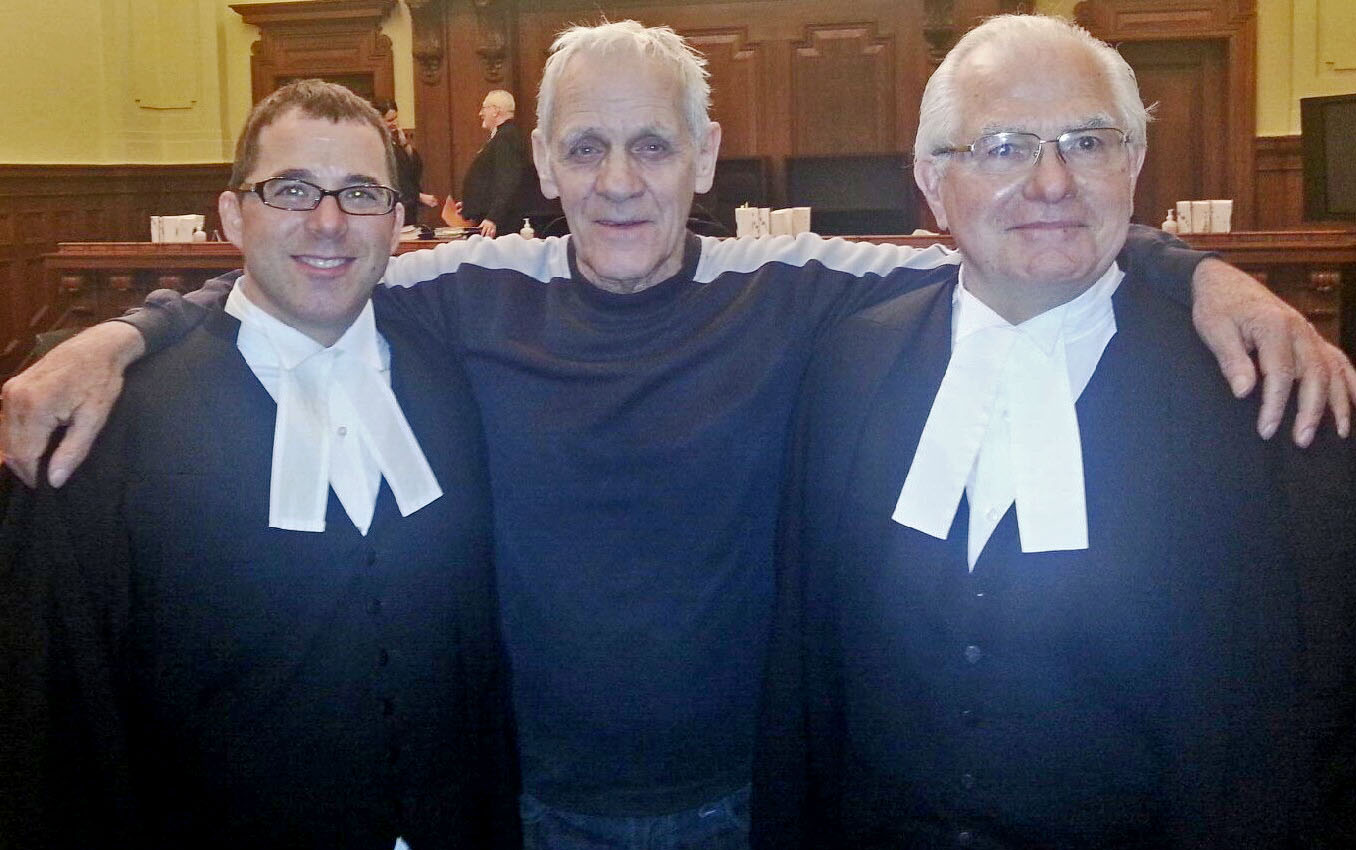Romeo Phillion, who was wrongfully imprisoned for 31 years, has been allowed to pursue a civil action against police and the Crown.

The Ontario Court of Appeal
allowed Phillion’s appeal yesterday, setting aside a lower court ruling that stayed his application partly due to the passage of several decades since his murder conviction.
The court said it would be “manifestly unfair” to bar Phillion’s action, in which he seeks $14 million in damages, because of how much time has lapsed.
“The fact that so much time has passed is no fault of the appellant’s,” said Justice Kathryn Feldman. “To in effect punish the appellant for the passage of time in these circumstances by staying his action strikes me as manifestly unfair.”
Phillion’s conviction came into question when in 1998, a parole officer handed him his conviction files. In it was a report written by Det. John McCombie that the court never saw at the time of the conviction. The report corroborates Phillon’s alibi that he had stopped at a service station in Trenton, Ont. with car problems at a time that would have delayed him from getting to Ottawa, Ont. in time to murder firefighter Leopold Roy.
Phillion, now in his mid-70s, applied for a ministerial review of his conviction. His matter was then sent for a reference hearing at the Court of Appeal, which ordered a new trial in his case after finding McCombie had been less than forthcoming at the trial when asked about his investigation of Phillion’s alibi. The Crown then withdrew its charge against Phillion, saying it could not pursue another trial since witnesses have since died and memories have faded.
In addition to the passage of time, Superior Court Justice Eva Frank had said Phillion’s civil application could not continue because it’s an abuse of process. She cited the earlier reference ruling that found although all evidence was not disclosed at the initial trial, the trial itself was not unfair based on the standards in place in 1972.
McCombie has since said he had discredited Pillion’s alibi through further investigation. The Crown argued he therefore had no obligation to disclose it at the time because the Supreme Court’s decision in R. v. Stinchcombe, which required police to disclose both inculpatory and exculpatory evidence, did not come out until 1991. On that basis, the appeal court on reference panel could not find that the trial had been unfair.
But yesterday, the court said this finding is separate from the civil action Phillion wants to mount.
In finding that the two were the same, Frank “failed to analyze the nature and purpose of the reference, including the specific question the court was asked to answer, in comparison with the issues raised in the civil claims,” the appeal court said.
The reference hearing did not consider many issues that could be brought up in a civil action, the court also said, including the Crown’s responsibility for the time that Phillion spent in prison after the Stinchcombe decision came out.
Phillion’s lawyer David Robins, a partner at Sutts, Strosberg LLP in Windsor, Ont., tells Legal Feeds his client had been asking for his police files for a long time before he received them.
“Following Stinchcombe, Mr. Phillion is still asking for his police file. He’s asking for his case to be re-opened and they gave him a redacted report were Det. McCombie’s report had been removed,” he says.
It took seven years after Stinchcombe before Phillion got any of the files through his parole office, notes Robins.
Phillion had initially confessed to murdering Roy before asserting his innocence just hours later. His murder conviction was unsuccesfully appealed all the way up to the Supreme Court of Canada.
Update Aug. 3: Correction of certain dates/times.

 The Ontario Court of Appeal allowed Phillion’s appeal yesterday, setting aside a lower court ruling that stayed his application partly due to the passage of several decades since his murder conviction.
The Ontario Court of Appeal allowed Phillion’s appeal yesterday, setting aside a lower court ruling that stayed his application partly due to the passage of several decades since his murder conviction.